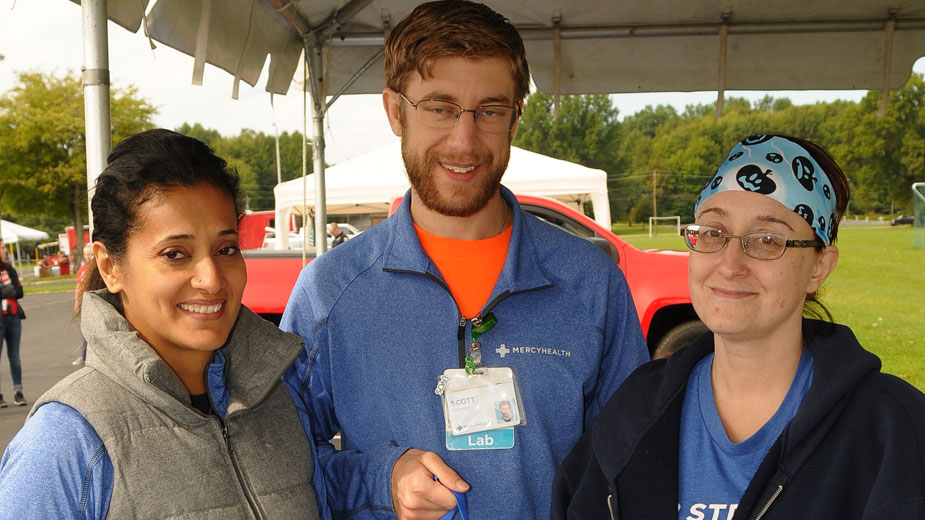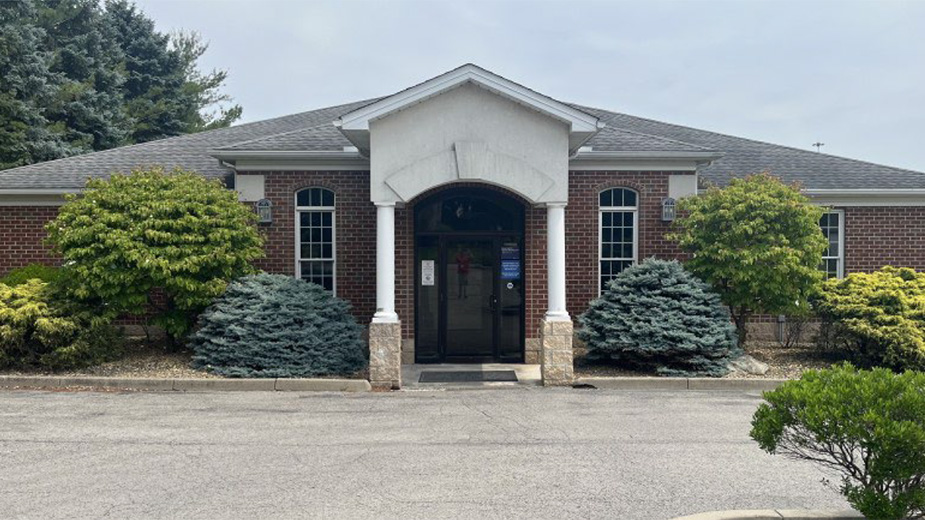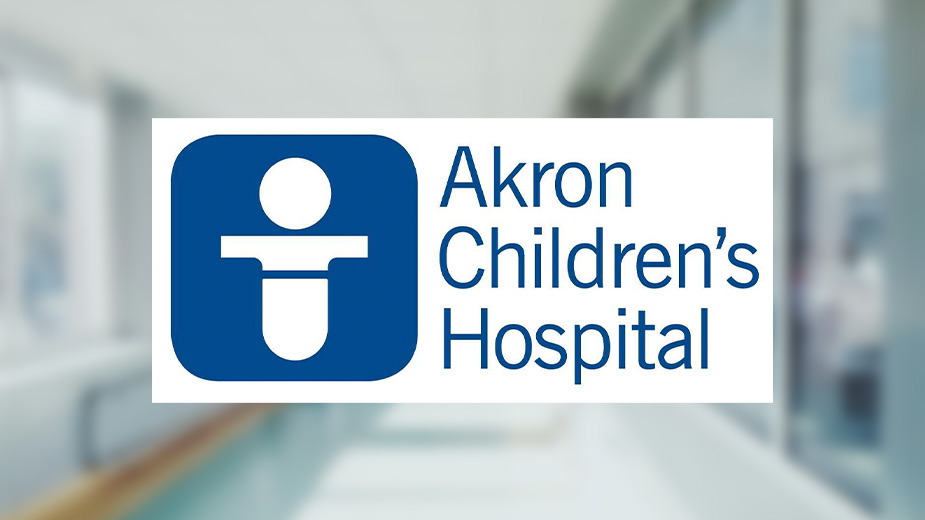Their Mission: Healthier Communities
YOUNGSTOWN, Ohio – Whether it’s an after-school program for children, a blight-removal project in a distressed neighborhood or providing social services to the most vulnerable in the community, there’s a good chance that one of the philanthropic foundations in the area or their benefactors contributed to the effort.
The Mahoning Valley’s philanthropic community still thrives, and its work – along with the vision and initiatives by local partners that range from small neighborhood groups to major corporations – has collectively made a difference across the region, executives say.
“We live in a very generous community,” says Paul Homick Jr., president of Mercy Health Foundation Mahoning Valley. “People care about each other and these programs reflect that.”
Mercy Health Foundation is the supporting organization of Mercy Health, which operates St. Elizabeth Youngstown Hospital, St. Elizabeth Boardman Hospital and St. Joseph Warren Hospital, as well as several clinics across the Mahoning Valley. “About 85% of what we do support the programs and initiatives around Mercy Health.”
Aside from providing charity care to patients in need, the foundation is busy administering important outreach initiatives designed to encourage better health among residents who live in neighborhoods where access is limited, Homick says.
The idea is to bring health and fitness to low-income neighborhoods through the stepping out program, in which exercise and fitness classes are offered free of charge at various neighborhood or community centers across Trumbull and Mahoning counties. Activities such as yoga, line dancing, aerobics classes, Zumba, and stretch and strength training are offered, while health screenings are held on select days.
“It’s for all ages and fitness levels,” Homick says. “By increasing physical activity, they can be healthier. Right now, more than 100 people are involved in it.”
Two other initiatives supported by Mercy Foundation, the fruit and vegetable prescription program and the Double Up program, also are meant to promote more healthful lifestyles among underserved populations. The fruit and vegetable program enables Mercy Health physicians to prescribe fruits and vegetables to patients that require a specific diet, Homick says. The patient is then issued a voucher, which can then be used at local farmers markets.
The Double Up program enables those who are enrolled in the Supplemental Nutrition Assistance Program, or SNAP, to double their buying power at local farmers markets. “If they spend $10 on fruits and vegetables, they actually are allowed to spend $20,” Homick says.
Other initiatives supported by Mercy Health Foundation include free or reduced-cost screenings for cancer, mobile mammography labs and children’s dental clinics.
“It’s a move toward preventive medicine,” Homick says. “These programs are empowering neighbors to live healthier.”
That same outcome is the goal for the Primary Health Care Charitable Network Foundation in Sharon, Pa., says Sarah Rupp, marketing director for Primary Health Care Network.
Among these efforts is the Caring for Our Neighbors program, which provides prescription assistance to patients suffering from high blood pressure, cancer, diabetes or heart complications, she says.
“Since its inception in 2013, more than $14,000 has been distributed to help patients adhere to their maintenance medications,” Rupp says.
Other programs include direct relief where health and hygiene supplies are provided to patients through a partnership with the National Direct Relief Program, she adds.
The foundation gives away more than $200,000 a year to worthy causes in education, health and community development across Pennsylvania and Ohio, Rupp notes.
Health outcomes across the Mahoning Valley remain an important concern for organizations that want to be part of the solution toward improving the overall health of the region, says Shari Harrell, president of the Community Foundation of the Mahoning Valley.
“Our biggest initiative right now is the Healthy Community Partnership,” she says, noting the Mahoning Valley ranks among the bottom third in the state when it comes to health, and Ohio is one of the worst-ranked nationwide.
“This is a cross-sector collaborative that brings in businesspeople, nonprofits and neighborhood development corporations to see what we can do to change things,” she says. “It’s gaining momentum and energy.”
Harrell says the program is still in its development stage, but should have some concrete plans and funding requests by the end of this year. “We’re looking at three aspects: access to healthy food retail, active transportation including safe routes to school, and the development of parks and green spaces,” she says.
In the midst of a strong economy, the amount of donations pouring in to the Community Foundation is relatively even from previous years, Harrell says. However, she has seen more donors choose to donate through other means because of changes in the tax code.
For example, Harrell says, there are some benefits for those who donate to charity their required minimum distribution directly through their Individual Retirement Account. “We’re also seeing more activity from people donating appreciated stock so they don’t pay capital gains,” she says.
Encouraging philanthropy sometimes takes an innovative approach, says Jan Strasfeld, executive director of the Youngstown Foundation. In April, the foundation announced that it would increase its match to 10% from 5% for donations to its Support Fund, which distributes grants to 81 nonprofits and charities in the Mahoning Valley.
“In terms of dollars, we’re up 36% since April,” Strasfeld says. “Through August, we were up about $100,000 compared to last year.”
The incentives were sweetened to help commemorate the centennial of the Youngstown Foundation, Strasfeld says.
Moreover, she says it’s likely the Support Fund will attract additional participating nonprofits and charities by next year. “We saw a 5% increase from last year,” she reports. “I expect a significant increase for next year. I think the local nonprofits would seriously consider it.”
Strasfeld is inclined to believe that doubling the match is the main driver behind the spike in donations. “People are more aware and they still want to support the things that are important to them,” she says.
Even in good economic times, nonprofits struggle through the same cost concerns as any other business, such as requiring upgrades and implementing efficiencies that allow their work to continue.
“Capacity building has been a mainstay for some time with us,” says Jennifer Roller, president of the Raymond John Wean Foundation. Two years ago, the Wean Foundation initiated a program in which it spearheaded an effort to improve the overall impact of nonprofits and the work they do.
As such, the Wean Foundation this year exhausted $150,000 in grant money awarded to select nonprofits that are looking for ways to improve their internal operations. A grant to the YWCAs of Warren and Youngstown, for example, was used to hire consultants that helped prepare the merger of the two groups. “They put together a communication plan – all of the things that were put in place to make the transition feasible,” she says.
The goal behind the initiative is to empower these nonprofits to take on some of these duties without using outside consultants. “It brings the organization to new levels of effectiveness,” Roller says. “More organizations are taking advantage of this.”
In 2017, the Wean Foundation, through all of its funds and initiatives, contributed $1.9 million to 35 nonprofits and organizations.
Over the last 10 years, the foundation has invested $1.6 million in various projects through its Neighborhood Success program. These grants trickled down to 236 grassroots organizations in Warren and Youngstown whose hands-on know-ledge of neighborhood issues helped determine how the money is spent.
“It was the grassroots folks who made the final funding decision,” Roller says. “They conducted the due diligence. They know the work, the players, all the things that we rely on. We’re walking the talk and empowering neighbors.”
Other examples of philanthropy in the region extend to major gifts to universities, high school programs, animal shelters, food pantries, academic scholarships and health-care causes.
“It’s really very eclectic,” says Joe Bell, spokesman for The Cafaro Co. and The Cafaro Foundation, established in 1998.
Since then, the foundation has awarded $16 million to recipients, including Youngstown State University, Duquesne University, Ursuline High School, the American Red Cross, Habitat for Humanity and providers of health care, Bell says.
“There are a lot of different causes,” he says. This year, the foundation awarded a grant to The Birds in Flight Sanctuary, a rescue operation for birds and wild animals that plans to move into a larger building in Howland Township.
In fiscal 2017, The Cafaro Foundation was budgeted to give $1.4 million to various causes and charities, Bell says. Often, these donations are augmented by private, individual contributions by members of the Cafaro family.
About a third of the foundation grants go toward education, Bell says, including $61,000 in scholarships to 26 students in the region. The foundation also makes contributions to schools and organizations outside the Mahoning Valley, especially in communities where The Cafaro Co. has commercial real estate developments.
“There was a small high school in Clarksville, Tenn., that for the first time won a state championship – a baseball team,” he says. “We gave them $10,000 and made sure the community there knew about their accomplishment.”
Other requests for grants have been odd, Bell notes. “We’ve had requests to support beauty pageants, family reunions – even a sponsorship for someone training to become a professional boxer.”
Most of the funding requests, however, are worthy, Bell says. “They might be turned down at the time because there are a lot of competing requests,” he says. “If it looks worthwhile, I always urge them to apply again.”
Pictured: The Mercy Health Foundation funds prostate cancer screenings at many public events such as the Fuel the Fight car show that took place in September. Conducting blood draws at that event were Mercy lab employees Haylah Celand, Scott Greenfield and Chris Parisi.
Copyright 2024 The Business Journal, Youngstown, Ohio.



